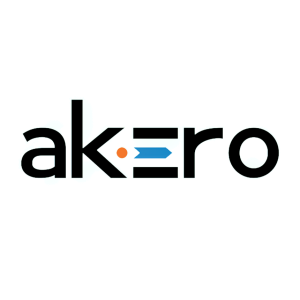Akero Therapeutics and HistoIndex Present New Analyses of Phase 2b HARMONY Trial in Oral and Poster Presentations at the EASL Congress 2025
Rhea-AI Summary
Positive
- qFibrosis® analysis showed strong concordance with conventional pathology methods, validating EFX's anti-fibrotic activity
- Over 50% of patients treated with 50mg EFX were responders across all three endpoints
- High response rates at Week 96 with 77-81% of patients showing improvement
- Earlier detection of treatment response possible with qFibrosis® compared to conventional methods
Negative
- None.
Insights
Akero's new EFX analysis validates drug efficacy with advanced AI pathology tools, strengthening its position in competitive MASH treatment landscape.
The new analyses from Akero's Phase 2b HARMONY trial represent a significant technical validation of efruxifermin's (EFX) anti-fibrotic activity in pre-cirrhotic MASH patients. What makes this data particularly compelling is the concordance between multiple measurement methods - AI-based digital pathology (qFibrosis®) and two non-invasive tests (ELF test score and FibroScan®). This multi-modal confirmation substantially reduces uncertainty in efficacy assessment.
The findings address a critical challenge in MASH drug development: distinguishing true drug effects from placebo variability due to biopsy sampling limitations. With 81% of patients on 50mg EFX showing response via qFibrosis® at Week 96, compared to 77% via conventional pathology, the data reinforces EFX's efficacy profile. More revealing is that qFibrosis® identified 18 responders at Week 24 versus only 10 via conventional pathology, suggesting earlier detection of treatment benefits.
This has important implications for Akero's competitive positioning in the MASH treatment landscape. The ability to demonstrate meaningful fibrosis improvement across multiple measurement modalities strengthens EFX's clinical profile. The concordance rate where over 50% of 50mg EFX patients responded across all three endpoints (versus fewer than 5% of placebo patients) provides robust evidence of treatment effect.
For a serious metabolic disease with limited treatment options, these findings position EFX as a potentially differentiated therapy with measurable anti-fibrotic effects that can be detected earlier and verified through multiple methods. This methodological validation adds considerable weight to previously reported efficacy outcomes and could accelerate the path toward potential regulatory approval.
Analysis of EFX results with AI-based digital pathology underscores the potential value in evaluating histopathology response
Data contribute to growing body of support around the anti-fibrotic activity of EFX in patients with pre-cirrhotic MASH
SOUTH SAN FRANCISCO, Calif., May 10, 2025 (GLOBE NEWSWIRE) -- Akero Therapeutics, Inc. (Nasdaq: AKRO), a clinical-stage company developing transformational treatments for patients with serious metabolic diseases marked by high unmet medical need, today announced results from new analyses of the 96-week Phase 2b HARMONY trial of efruxifermin (EFX) in patients with pre-cirrhotic (F2-F3 fibrosis) metabolic dysfunction-associated steatohepatitis (MASH) in an oral presentation and a poster presentation at the European Association for the Study of the Liver (EASL) Congress 2025 taking place May 7-10, in Amsterdam, the Netherlands.
The presentations corroborate the antifibrotic activity previously reported by conventional pathology for EFX in patients with pre-cirrhotic MASH. Specifically, among patients treated with EFX, digital pathology analysis by HistoIndex’s AI-based qFibrosis® showed concordance at the individual level with two non-invasive tests (NIT) of liver fibrosis—ELF test score and liver stiffness measurement (FibroScan®)—with more than half of patients treated with 50mg EFX classified as responders by all three endpoints compared to fewer than
“One of the challenges of developing a MASH investigational drug is distinguishing treatment effect from placebo ‘noise’ due to the inherent variability of biopsy sampling coupled with categorical pathology scoring,” said Kitty Yale, chief development officer at Akero. “As a continuous scoring scale, AI-based qFibrosis®, combined with the two NITs, reduces placebo noise, allowing the potent anti-fibrotic effect of EFX to be clearly differentiated from placebo.”
The poster presentation, based on a post-hoc analysis of the 96-week HARMONY trial in patients with F2-F3 MASH quantifying the amount of collagen in each zone of the liver using qFibrosis®, describes how the antifibrotic effect of EFX after 24 weeks treatment was greater than observed by conventional pathology, but after 96 weeks it was similar. For example, qFibrosis® analysis of Week 96 biopsy samples from 50mg EFX patients (N=26) revealed consistency between conventional pathology and qFibrosis®, with totals of 20 (
Details for the presentations are as follows:
Oral Presentation
Title: Alignment of response assessed by non-invasive fibrosis biomarkers and HistoIndex AI-based qFibrosis histology in metabolic dysfunction associated steatohepatitis (MASH) clinical trials: a new roadmap for robust drug efficacy assessment demonstrated in the HARMONY trial
Speaker: Prof. Quentin M. Anstee, Ph.D., FRCP, Ruth & Lionel Jacobson Chair of Personalised Medicine, Dean of Research & Innovation in the Faculty of Medical Sciences, Newcastle University, UK
Date/Time: Saturday, May 10, 2025, from 10:30 am – 10:45 am CET
Abstract Identifier: OS-096
Oral Session: MASLD: Clinical and therapeutical aspects II
Poster presentation
Title: qFibrosis enables earlier detection of fibrosis response in Efruxifermin-treated patients with F2-F3 MASH in 96-week HARMONY study
Speaker: Jörn M. Schattenberg, M.D., Professor of Medicine, Director of the Department of Medicine, Saarland University Medical Center, University of Saarland
Date/Time: Saturday, May 10, 2025, from 8:30 am – 4:00 pm CET
Abstract Identifier: TOP-458
Session: Poster - MASLD: Therapy
About the HARMONY Study
The Phase 2b HARMONY study was a multicenter, randomized, double-blind, placebo-controlled trial in biopsy-confirmed adult MASH patients with fibrosis stage 2 or 3. The study enrolled a total of 128 patients who were randomized to receive once-weekly subcutaneous dosing of 28 mg or 50 mg EFX, or placebo for 24 weeks, 126 of whom received at least one study dose. The primary efficacy endpoint for the study was the proportion of subjects who experienced ≥1-stage fibrosis improvement without worsening of MASH. The study continued for up to 96 weeks. Secondary endpoints at Week 96 included proportion of patients with ≥1-stage fibrosis improvement and no worsening of MASH, proportion of patients with 2-stage fibrosis improvement without worsening of MASH, and proportion of patients with ≥1-stage fibrosis improvement and MASH resolution, as well as changes from baseline in noninvasive markers of liver injury and fibrosis, glycemic control, lipoproteins, and change in body weight as well as safety and tolerability measures.
About EFX
Efruxifermin (EFX), Akero’s lead product candidate for MASH, is currently being evaluated in three ongoing Phase 3 studies. In multiple Phase 2 studies, EFX has been observed to reverse fibrosis (including compensated cirrhosis), resolve MASH, reduce non-invasive markers of fibrosis and liver injury, and improve insulin sensitivity and lipoprotein profile. This holistic profile offers the potential to address the complex, multi-system disease state of all stages of MASH, including improvements in lipoprotein risk factors linked to cardiovascular disease – the leading cause of death among MASH patients. Engineered to mimic the biological activity profile of native FGF21, EFX is designed to offer convenient once-weekly dosing and has been generally well-tolerated in clinical trials to date.
About Akero Therapeutics
Akero Therapeutics is a clinical-stage company developing transformational treatments for patients with serious metabolic diseases marked by high unmet medical need, including metabolic dysfunction-associated steatohepatitis (MASH). Akero’s lead product candidate, efruxifermin (EFX), is currently being evaluated in three ongoing Phase 3 clinical studies: SYNCHRONY Histology in patients with pre-cirrhotic (F2-F3 fibrosis) MASH, SYNCHRONY Outcomes in patients with compensated cirrhosis (F4) due to MASH, and SYNCHRONY Real-World in patients with MASH or MASLD (metabolic dysfunction-associated steatotic liver disease). The Phase 3 SYNCHRONY program builds on the results of two Phase 2b clinical trials, the HARMONY study in patients with pre-cirrhotic MASH and the SYMMETRY study in patients with compensated cirrhosis due to MASH. Akero is headquartered in South San Francisco. Visit us at akerotx.com and follow us on LinkedIn and X for more information.
Forward Looking Statements
Statements contained in this press release regarding matters that are not historical facts are "forward-looking statements'' within the meaning of the Private Securities Litigation Reform Act of 1995. Because such statements are subject to risks and uncertainties, actual results may differ materially from those expressed or implied by such forward-looking statements, including, but not limited to, statements regarding Akero’s business plans and objectives; the potential therapeutic effects and anti-fibrotic activity of EFX, as well as the dosing, safety and tolerability of EFX; and the potential benefits of analyzing results with AI-based digital pathology. Any forward-looking statements in this press release are based on management's current expectations of future events and are subject to a number of risks and uncertainties that could cause actual results to differ materially and adversely from those set forth in or implied by such forward-looking statements. Risks that contribute to the uncertain nature of the forward-looking statements include: the success, cost, and timing of Akero’s product candidate development activities and planned clinical trials; Akero’s ability to execute on its strategy; positive results from any of its clinical studies may not necessarily be predictive of the results of future or ongoing clinical studies; regulatory developments in the United States and foreign countries; Akero’s ability to fund operations; as well as those risks and uncertainties set forth more fully under the caption "Risk Factors'' in Akero’s most recent Annual Report on Form 10-K and Quarterly Report on Form 10-Q, as filed with the Securities and Exchange Commission (SEC) as well as discussions of potential risks, uncertainties and other important factors in Akero’s other filings and reports with the SEC. All forward-looking statements contained in this press release speak only as of the date on which they were made. Akero undertakes no obligation to update such statements to reflect events that occur or circumstances that exist after the date on which they were made.
Investor Contact:
Christina Tartaglia
Precision AQ
212.362.1200
IR@akerotx.com
Media Contact:
Peg Rusconi
Deerfield Group
617.910.6217
Peg.rusconi@deerfieldgroup.com








